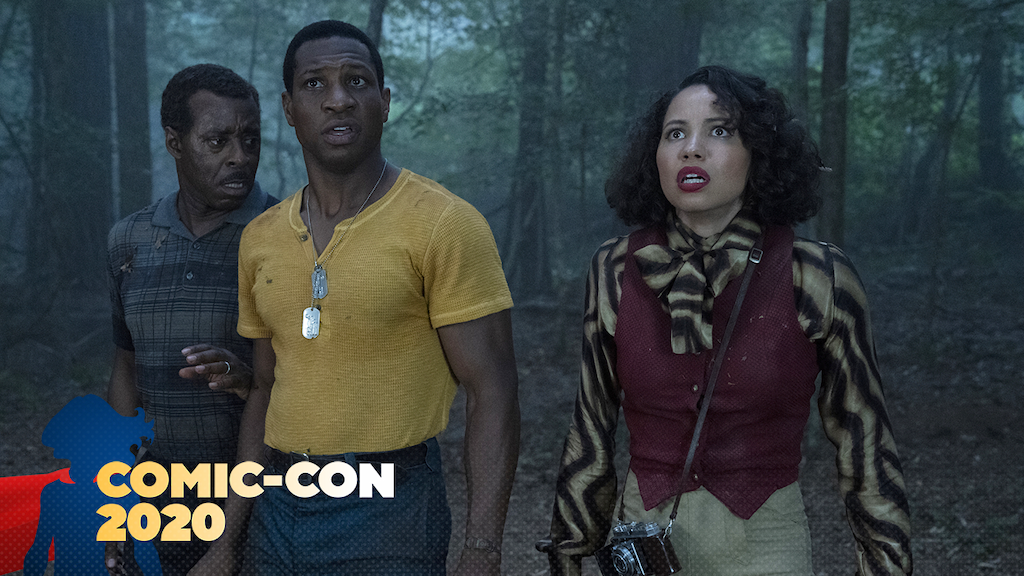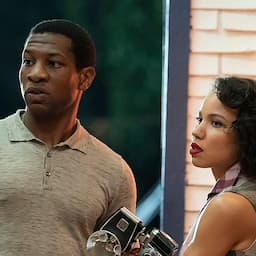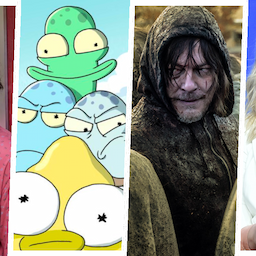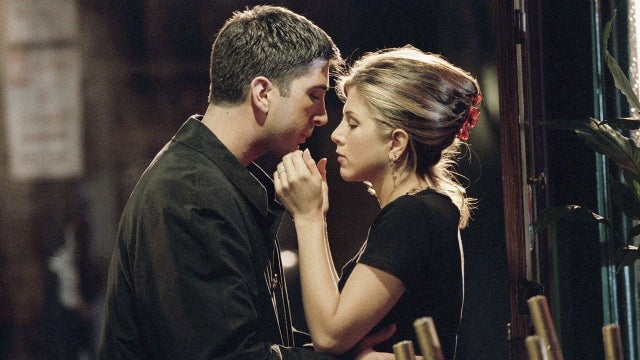Jonathan Majors, Jurnee Smollett, Courtney B. Vance, Michael K. Williams and more shared an extended sneak peek at Comic-Con@Home.
HBO's Lovecraft Country taps into the Black experience with a sci-fi twist.
The upcoming 10-episode drama series, adapted from Matt Ruff's bestselling 2016 novel, follows the adventures of Atticus Freeman (Jonathan Majors), his friend Letitia Lewis (Jurnee Smollett) and his Uncle George (Courtney B. Vance) as they travel across 1950s Jim Crow America in search of Atticus' missing father (Michael K. Williams).
What starts off as a haunting look at the terrors of racism of white America slowly becomes more twisted when the three heroes are being hunted by terrifying monsters that could be taken straight from a H.P. Lovecraft novel. Produced by Jordan Peele and J.J. Abrams, Lovecraft Country is created and written by Misha Green.
"It taps into so many themes that we get to explore about who we were as a nation, who we are now, who we were in Jim Crow America in 1955," Smollett said during Saturday's Comic-Con@Home panel. "It's a show about a family in search of family."
"And the things of what's happened back then are still going on today," Vance chimed in. Williams added that the monsters in the series are physical manifestations of invisible horrors: "The monsters represented everything that is dark and vile in society."
For Majors, who starred in 2019's The Last Black Man in San Francisco, reading through the first script had a profound effect on him -- so much so that he read it a second time immediately after.
"I was, in many ways, amazed that this was written. 'And he's a Black guy? Atticus is Black? That's the guy? That's who we're following?'" he recalled. "What has happened in the writing and in the making of it with Atticus and everybody, you kind of get to explore not just the archetypal ideas of what we tend to play. He's not just this soldier, that's pretty common. He's also a bibliophile. He also gets to travel; he's an adventurer. He has all of these ideas. He's a strong body, he's a strong mind, he's a strong heart. All that was apparent to me in the reading of the script."
"And the connections. You look for the character and who he's connected to -- like fatherhood, what it is to be a son, what it is to be a Black son, what it is to grow up in a Black community at a time where that was a very unexplored area. We didn't have any stories about that," Majors continued. "When we first meet Atticus, he's reading a book. He's a Lovecraftian bibliophile, that's not commonplace. It didn't take me much to know like, yeah, it's on."
Smollett spoke specifically about a scene in Lovecraft Country that depicted systemic racism through the lens of the drama's fantastical world. The series, though set decades earlier, explores many real-world themes and issues Black Americans face today.
"It is tough because there are so many themes that we explore in this show that resonate with us as Black Americans in 2020. Unfortunately as we're seeing, sometimes our police departments are, as [activist] Angela Davis calls 'one of the most dramatic examples of structural racism.' And tapping into the systemic racism that our nation is built upon is a dark place to go to but it's necessary," Smollett said. "This story, as one of my teachers refers to, is blood money. It's something that reverberates through our DNA -- this visceral connection to the oppression of our people. That's why these stories, we're still telling them. When you tap into those stories that we are tapping into in Lovecraft, there's a familiar emotion that it brings up for sure. But again... we had each other. I don't know if I would have survived the show... without having my brothers and my sisters in arms."
While Lovecraft Country asks audience members to dig into difficult subject matter, Majors said balancing that with the genre-bending tone of the show is reflective of real life.
"It's innate to human beings and it's very particular to the African American experience. We wouldn't be here now if we could find the levity in the humor in humanity," he said. "And Black folks -- we're full human beings. There's sorrow, there's joy and just this cast, we're all extremely tight. We have made a family. There were days where s**t would go crazy on set and it'd be crazy, fun and then it'd be crying about this and this and then crying about this, this and this, and then shooting the shot."
"For me, it felt extremely natural. It felt like we was at home," Majors continued. "I still have a hard time calling Courtney B. Vance, Courtney B. Vance. He's Uncle George. Michael K. Williams is Pops. [Jurnee Smollett is] Lettie, etc... That's who they are to us. We were such a family, so the ecosystem was that of culture... Whatever it takes."
The panelists, which included Wunmi Mosaku and Abbey Lee, also praised the opening scene of Lovecraft Country's first episode, which features a moment of "grown Black love" between Aunjanue Ellis' Hippolyta and Vance's George. "And it's sexy!" Smollett marveled.
Watch an extended scene from Lovecraft Country starting at the 41:00 mark in the Comic-Con@Home panel below.
Lovecraft Country premieres Sunday, Aug. 16 at 9 p.m. ET/PT on HBO.
To stay up to date on breaking TV news, sign up for ET's daily newsletter.
RELATED CONTENT:



